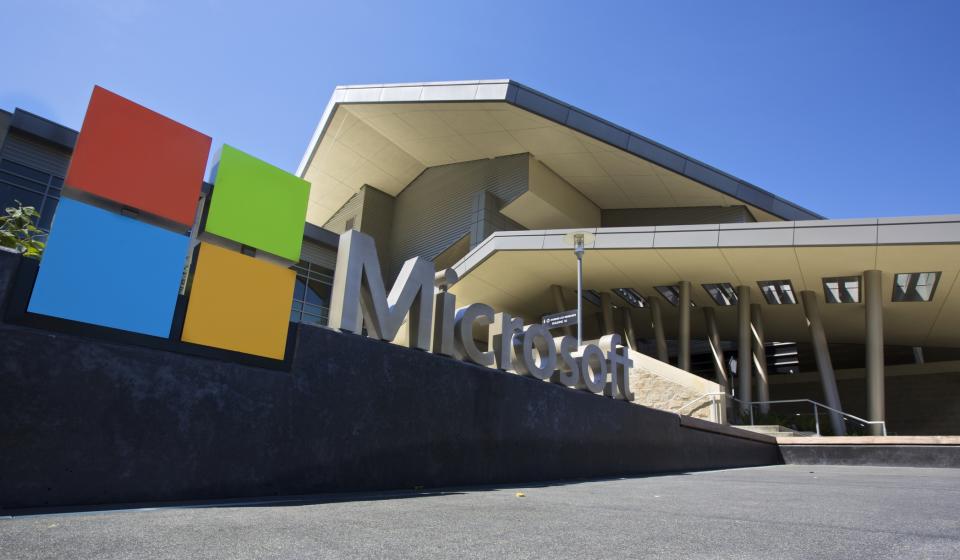Microsoft Earnings: Will Cloud Computing Continue to Provide Momentum?
Over the past year, Microsoft (NASDAQ: MSFT) has continued its relentless trek upward. Shares of the software and cloud computing giant have gained nearly 28% over the past year, eclipsing the 7% rise of the S&P 500. Its stock price has been driven by solid growth in its legacy software businesses and continued gains in cloud computing.
Microsoft will again make its case to investors when the company reports the financial results of its fiscal third quarter (which ended March 31), after the market close on Wednesday, April 24. Let's recap Microsoft's second-quarter results and look at recent events for insight into what to expect when the company reports.

Image source: Microsoft.
A solid, if unremarkable, quarter
For its fiscal second quarter, which ended Dec. 31, Microsoft reported revenue of $32.5 billion, up 12% year over year, edging past analysts' consensus estimates and near the high end of its forecast. This performance resulted in adjusted earnings per share of $1.10, which also edged out expectations.
Microsoft produced solid growth across its operating segments. Revenue from productivity and business processes grew 13% year over year, while intelligent cloud revenue shone, climbing 20% from the prior-year quarter. The organization's personal computing unit produced more tepid growth, up 7% year over year.
Recent events
Cloud computing has become an integral part of Microsoft's growth strategy, so it bears watching developments in this space. The company is said to be seriously considering creating a host of e-commerce tools for its Azure Cloud customers.
Amazon.com (NASDAQ: AMZN) is the undisputed leader in the cloud computing industry with its Amazon Web Services (AWS) unit, but Microsoft Azure is its biggest competitor. A growing number of brick-and-mortar retailers, including privately-held Albertsons, Walgreens Boots Alliance, Kroger, and Walmart, have chosen Azure over AWS because of their ongoing competition with Amazon.
Adding a broad range of e-commerce capability to its cloud computing platform would make Azure even more appealing to prospective users and could potentially help Microsoft narrow Amazon's lead.
What the quarter could hold
For the third quarter, Microsoft is guiding for revenue of between $29.4 billion and $30.1 billion, which would represent growth in a range of 9.7% to 12.3% year over year. The company is also forecasting cost of goods sold of $10.45 billion and expenses of $10.15 billion, both at the midpoint of its guidance. Microsoft doesn't provide earnings-per-share guidance.
While we don't want to fall victim to its short-term thinking, understanding Wall Street sentiment can provide context for the market's reaction to a company's earnings report. Analysts' consensus estimates are calling for revenue of $29.84 billion, up about 11.3% from the prior-year quarter, and earnings per share of $1, up 5.3%.
Microsoft's software business continues to take a back seat to its cloud computing ambitions. As more and more companies begin to see Amazon as a competitive threat, a growing number of those could view Microsoft as a safe haven, and an important alternative to sleeping with the enemy.
We'll know much more when Microsoft reports.
More From The Motley Fool
John Mackey, CEO of Whole Foods Market, an Amazon subsidiary, is a member of The Motley Fool's board of directors. Teresa Kersten, an employee of LinkedIn, a Microsoft subsidiary, is a member of The Motley Fool's board of directors. Danny Vena owns shares of Amazon. The Motley Fool owns shares of and recommends Amazon and Microsoft. The Motley Fool has a disclosure policy.

 Yahoo Finance
Yahoo Finance 